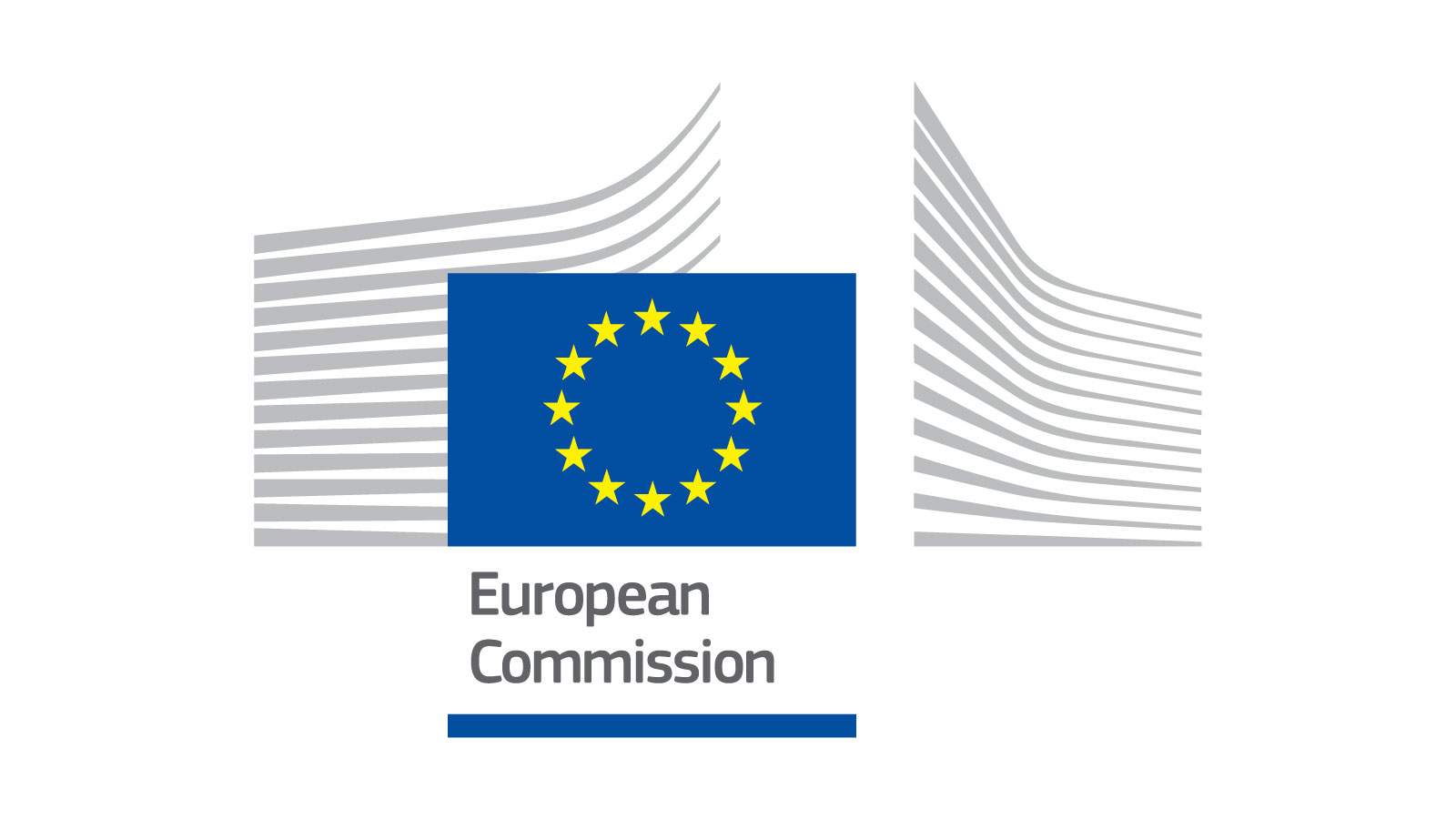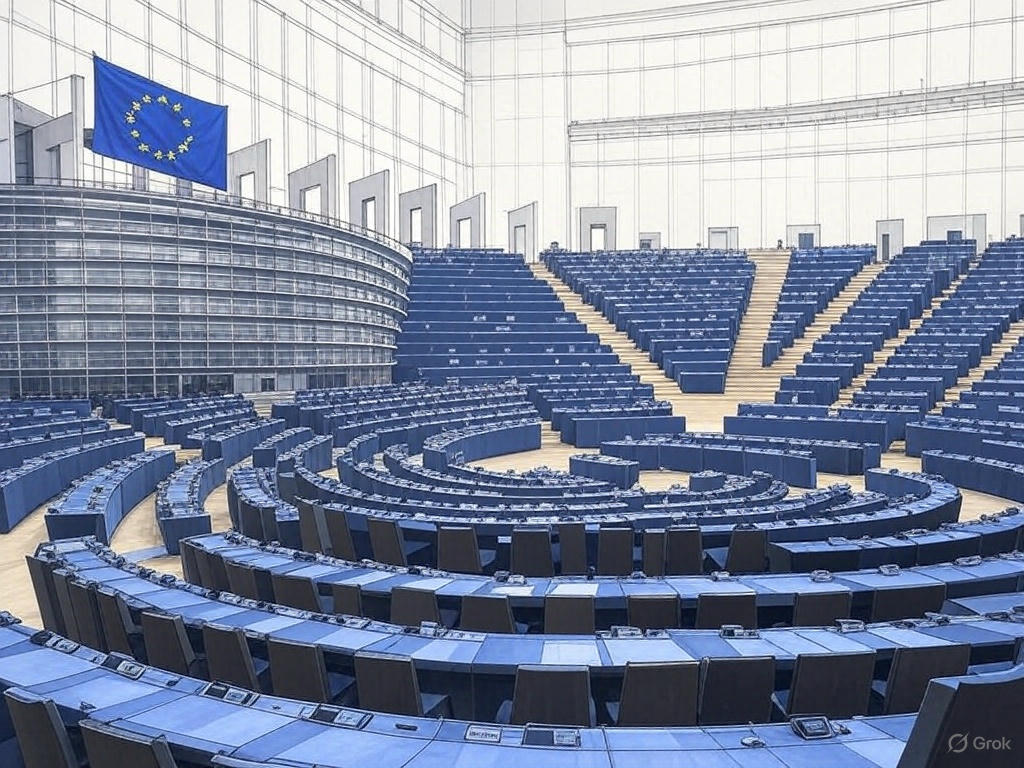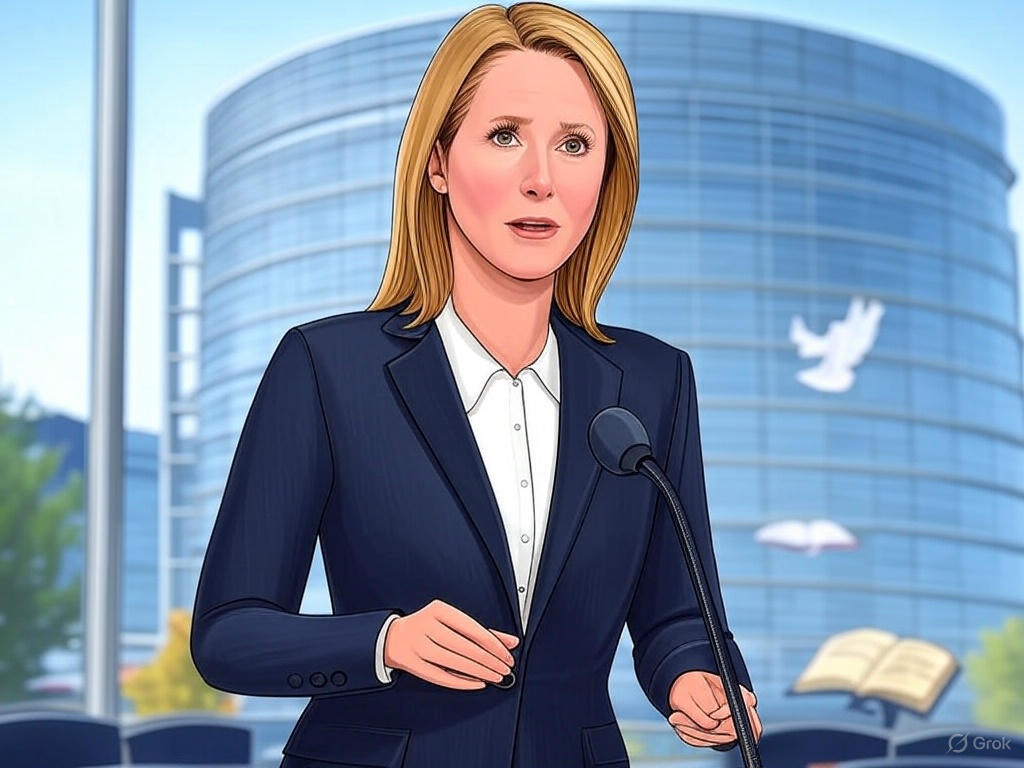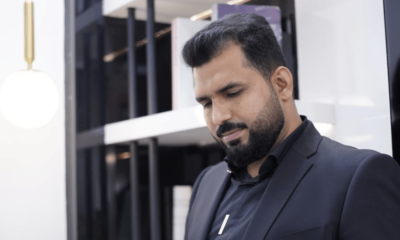Politics
MSCA awards €608.6 million for doctoral programmes



DISCLAIMER: Information and opinions reproduced in the articles are the ones of those stating them and it is their own responsibility. Publication in The European Times does not automatically means endorsement of the view, but the right to express it.
DISCLAIMER TRANSLATIONS: All articles in this site are published in English. The translated versions are done through an automated process known as neural translations. If in doubt, always refer to the original article. Thank you for understanding.

– Advertisement –
– Advertisement –
The European Commission has announced the results of the 2024 Marie Skłodowska-Curie Actions (MSCA) Doctoral Networks call.
The Commission will fund a total of 149 excellent doctoral programmes with €608.6 million to train over 1800 doctoral candidates in and outside academia.
€536.9 million will be awarded to 133 standard Doctoral programmes, to train PhD candidates and develop their skills.
Funding includes also €26 million for 8 Industrial Doctoral programmes to train PhD candidates and develop their skills outside academia, including in industry and business. Doctoral candidates will also benefit from joint industry-academia supervision.
An additional €33 million will be allocated to 8 Joint Doctoral programmes, which promote joint selection, training and supervision leading to joint or multiple doctoral degrees.
The European Research Executive Agency (REA) received 1,417 applications for this call. This means a success rate of 10.6 %.
Close collaboration beyond academia
These doctoral programmes are implemented by international partnerships, involving 9335 organisations in 130 countries in the EU, Horizon Europe associated countries and beyond. 4725 of these are private for-profit entities.
Selected projects are coordinated by organisations in 18 countries.
Source link
More from the author
– EXCLUSIVE CONTENT –
Politics
36 000 free EU travel passes for 18-year-olds


© FRVS+MPCP 2022. The European Times® News is registered as an EU Trademark. All rights reserved. The European Times® and the logo of The European Times® are EU trademarks registered by FRVS+MPCP.
Members/Partners of

About Us
Popular Category
DISCLAIMER OPINIONS: The opinions of the authors or reproduced in the articles are the ones of those stating them and it is their own responsibility. Should you find any incorrections you can always contact the newsdesk to seek a correction or right of replay.
DISCLAIMER TRANSLATIONS: All articles in this site are published in English. The translated versions are done through an automated process known as neural translations. If in doubt, always refer to the original article. Thank you for understanding.
DISCLAIMER PHOTOS: We mostly used photos images that are readily available online, from free sources, or from the people promoting the news. If by any chance it happens that we have used one of your copyrighted photos, please do not hesitate to contact us and we will take it down without question. We do not make profits as this is a not for profit project to give voice to the voiceless while giving them a platform to be informed also of general news, and it is completely free.
Editor Picks
Politics
EU Parliament Tackles Steel Industry, Fundamental Rights, and Budget Priorities in Plenary Session

Strasbourg, 2 April 2025 – The European Parliament convenes today for a busy plenary session, addressing critical issues ranging from the future of the EU’s steel industry to threats to fundamental rights in Hungary, alongside votes on the bloc’s 2026 budget priorities. With debates spanning energy-intensive industries, security, and human rights, MEPs engaged with key EU figures, including Commission Executive Vice-Presidents and Polish Minister for EU Affairs Adam Szłapka, who represented the rotating EU Council presidency.
Steel and Energy-Intensive Industries Take Center Stage
The day kicked off at 9:00 with a debate on a new action plan aimed at ensuring a competitive and decarbonized steel and metals industry in Europe. MEPs, joined by Commission Executive Vice-President Stéphane Séjourné and Minister Szłapka, discussed strategies to bolster the sector amid global competition and the EU’s ambitious climate goals. Baptiste Chatain, spokesperson for the EP’s Industry Committee, emphasized the importance of balancing economic viability with sustainability, noting that a resolution on the plan will be voted on Thursday.
From 10:30, the focus shifted to the broader landscape of energy-intensive industries. Vice-President Séjourné outlined the Commission’s approach to supporting these sectors, which are pivotal to the EU’s economic backbone but face mounting pressure to adapt to green policies. The discussions underscored the delicate interplay between industrial competitiveness and the bloc’s net-zero ambitions.
Hungary’s Fundamental Rights Under Scrutiny
At around 15:00, attention turned to Hungary, where recent legislative changes have raised alarm bells over their impact on fundamental rights. MEPs debated the issue with Commissioner Conor McGrath and Minister Szłapka, focusing on concerns about democratic backsliding, media freedom, and judicial independence. Kyriakos Klosidis, spokesperson for the EP’s Institutional Affairs team, highlighted the session as a critical moment to assess Hungary’s compliance with EU values, with outcomes likely to influence future relations between Budapest and Brussels.
Budget Priorities for 2026: Security and Sustainability
At noon, MEPs voted on their priorities for the 2026 EU budget, a draft text that emphasizes strengthening security and defense capabilities, economic resilience, and climate action. The resolution also calls for reinforcing the single market to boost competitiveness. Rapporteur Eszter Zalán, who will address the press at 14:00, stressed the need for a budget that reflects the EU’s evolving challenges, particularly in light of geopolitical tensions and environmental imperatives.
Security, Social Europe, and Cyprus
The afternoon featured a debate at 16:00 on military mobility, with MEPs assessing the role of cross-border transport infrastructure in bolstering Europe’s security. Commissioner Margaritis Tzitzikostas and Minister Szłapka joined the discussion, framed by Russia’s ongoing war in Ukraine, which has heightened the urgency of such investments.
Earlier, at 13:00, a debate on the cost-of-living crisis saw MEPs, Vice-President Roxana Mînzatu, and Szłapka explore ways to safeguard jobs, wages, and healthcare amid economic strain. Meanwhile, at 11:50, EP President Roberta Metsola delivered a statement on UN-led efforts to resolve the Cyprus problem, followed by remarks from political group leaders, signaling continued EU support for a negotiated settlement.
Roma Rights and Global Human Rights
From 18:00, MEPs and Commissioner Hadja Lahbib tackled discrimination against Roma communities, discussing strategies to protect their rights and integrate them into the EU’s social fabric. Later, the evening session shifted to urgent human rights concerns, with debates on the prosecution of journalists in Cameroon, Iran’s execution spree, and repression under Belarusian leader Alexander Lukashenka. Resolutions on these issues will be voted on Thursday.
Additional Votes and Closing Notes
The midday voting session also covered the EU’s foreign and security policies for 2024, human rights globally, and a fisheries agreement with Guinea-Bissau, among other topics. Live coverage of the plenary is available on Parliament’s webstreaming platform and EbS+, offering a window into the EU’s legislative pulse.
As the session unfolds, the European Parliament continues to navigate a complex landscape of industrial transformation, democratic integrity, and global responsibility, setting the stage for pivotal decisions in the days ahead. For more details, the EP’s newsletter and plenary resources provide comprehensive insights into this dynamic agenda.
Politics
EU Stands Firm on Human Rights Amid Global Challenges, Kallas Tells European Parliament

Strasbourg, April 1, 2025 – In a powerful address to the European Parliament plenary session on the 2024 Annual Report on Human Rights and Democracy in the World, High Representative and Vice-President Kaja Kallas underscored the European Union’s unwavering commitment to defending human rights and democracy amid a turbulent global landscape. Delivered on April 1, 2025, in Strasbourg, the speech highlighted both the mounting threats to the rules-based international order and the EU’s proactive efforts to counter them.
Kallas opened her remarks by thanking Rapporteur Isabel Wiseler Lima and other contributors to the Parliament’s report, before drawing on her recent address to the United Nations Security Council. She emphasized that the principles enshrined in the UN Charter—peace, prosperity, human rights, dignity, and development—are under unprecedented strain. “Eighty years on, we see these principles under heavy fire,” she said, pointing to violations of international law, democratic backsliding, and assaults on gender equality and media freedom.
The High Representative singled out Russia’s ongoing war against Ukraine as a stark example of this erosion, calling it “a direct challenge to the rules-based international order and an assault on sovereignty.” She also referenced the conflict between Israel and Gaza as a sobering reminder of the fragility of human rights in wartime. Closer to home, she noted the growing threat posed by authoritarian regimes, a concern echoed in the Parliament’s 2024 report.
Yet, amid these challenges, Kallas struck a note of cautious optimism. She cited the fall of the Assad regime in Syria in December 2024 as a historic turning point, ending 54 years of dictatorship. “There is hope, nonetheless,” she said, stressing that the EU must work to ensure the rights of all Syrians are protected during the country’s fragile transition.
A Steadfast Partner in Turbulent Times
Kallas outlined the EU’s robust response to global human rights crises, positioning the bloc as a reliable and predictable partner. In 2024 alone, the EU supported over 10,000 high-risk human rights defenders, adding to a total of 80,000 individuals aided since 2015. Just two weeks prior to her speech, the EU adopted a €349 million funding package to bolster human rights and democracy initiatives worldwide through 2027. This commitment, she said, extends to countering pushback against gender equality and the rights of women, girls, and LGBTIQ+ individuals.
The EU’s support for the United Nations human rights framework also took center stage. Kallas reaffirmed the bloc’s advocacy for the UN High Commissioner for Human Rights and its push for accountability through mechanisms like the International Criminal Court (ICC). “Respect for international humanitarian law by state and non-state actors, and accountability for violations committed, are the cornerstone for peace and security,” she declared. She revealed that she met with the ICC President in March 2025 to reinforce the EU’s backing, amid discussions on enhancing financial and diplomatic support for the Court.
The EU Global Human Rights Sanctions Regime, established in 2020, has proven a vital tool, with swift measures imposed in 2024 targeting human rights abusers in Russia, the Middle East, and North Korea. “This demonstrates our determination to strengthen our role in addressing serious human rights violations and abuses worldwide,” Kallas said.
Democracy in Action
Reflecting on 2024 as a “super election year,” with over 75 countries holding elections, Kallas praised the role of EU Election Observation Missions in safeguarding electoral integrity and democratic governance. She pledged continued support for parliaments, independent media, and democratic actors operating in hostile environments, promising close collaboration with the European Parliament in these efforts.
In her closing remarks, Kallas framed the defense of human rights as inseparable from the pursuit of peace. “Peace is not simply the absence of war; it is active cultivation of justice,” she said, emphasizing that human dignity and rights are foundational to lasting stability. She called on the EU to leverage its values as a strategic asset, fostering partnerships with third countries based on sustainable progress and mutual benefit.
A Call to Unity
Kallas concluded with a rallying cry for unity, urging the Parliament to stand firm against the erosion of the EU’s core principles. “The European Union is founded on peace, democracy, and unity,” she said. “We must make very clear that we will not tolerate the erosion of these rights and freedoms that really define us.”
As the High Representative prepares to release her own 2024 human rights and democracy report, her speech served as both a sobering assessment of global challenges and a resolute affirmation of the EU’s leadership in confronting them. With the European Parliament as a key ally, Kallas signaled that the bloc’s commitment to human rights remains a cornerstone of its identity—and its future.
-

 EU & the World7 days ago
EU & the World7 days agoCould Litia Garr Be the Next Bachelorette? Update After Grant Ellis Breakup
-

 EU & the World6 days ago
EU & the World6 days agoInnam Dustgir’s Approach to Public Relations
-

 EU & the World7 days ago
EU & the World7 days agoWho Is Tulsi Gabbard? 5 Things to Know About the Director of National Intelligence
-

 EU & the World7 days ago
EU & the World7 days agoCindyana Santangelo’s Kids: About the Late ‘Married With Children’ Star’s Family
-

 EU & the World7 days ago
EU & the World7 days agoLady Gaga’s Mayhem Tour: Dates, Cities & Ticket Prices
-

 Politics5 days ago
Politics5 days agoEU supports the EU wine sector to cope with market uncertainties
-

 Sports6 days ago
Sports6 days agoOlimpia Milano still knocked out, Ettore Messina doesn’t mince words
-

 EU & the World7 days ago
EU & the World7 days ago‘Avengers: Doomsday’ Cast: See the Actors & Find Out Their Roles







